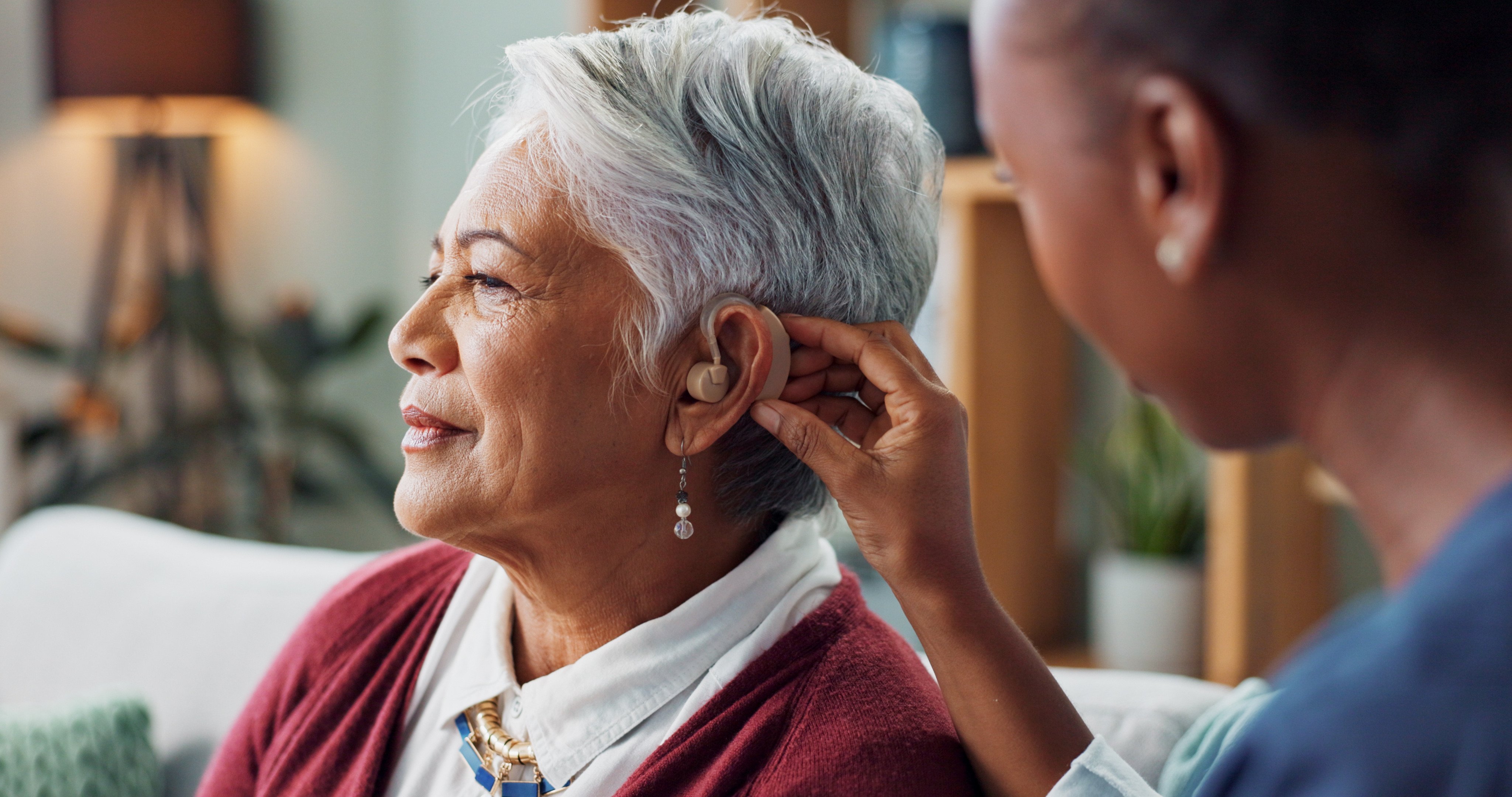As we age, it’s normal to experience changes in our hearing, but maintaining ear health is essential to staying connected and engaged in daily life. According to the National Institute on Deafness and Other Communication Disorders (NIDCD), nearly one in three people between the ages of 65 and 74 have hearing loss, and that number increases to half of those over 75. The good news is that there are many ways to protect your hearing and improve ear health as you get older.
At Winnwood Retirement Community, we want to provide our residents with helpful information to preserve their hearing and ensure they continue to enjoy conversations, music, and the sounds of daily life. Here are some practical tips and facts to help you maintain optimal hearing as you age.
1. Get Regular Hearing Checkups
Just like routine eye exams, regular hearing tests are important as you get older. Hearing loss can be gradual, and many seniors may not notice it right away. The Hearing Loss Association of America reports that adults with hearing loss wait an average of 7 years before seeking help. Regular screenings can catch early signs of hearing loss, allowing for earlier interventions that can improve your quality of life.
What You Can Do:
- Schedule a hearing test with an audiologist at least once a year, especially if you notice difficulty following conversations or need to turn up the volume on your TV.
- Many health insurance plans and Medicare cover routine hearing exams, so be sure to ask your provider about your options.
2. Protect Your Ears from Noise
Noise-induced hearing loss is one of the most common and preventable causes of hearing damage. Everyday activities like listening to loud music, attending noisy events, or using power tools can damage your hearing over time. Once hearing is lost, it cannot be restored, so prevention is key.
What You Can Do:
- Avoid prolonged exposure to loud sounds, and use ear protection (like earplugs or noise-canceling headphones) when in noisy environments.
- Keep the volume at a reasonable level when listening to music or watching TV—if others can hear your music through your headphones, it’s too loud.
- Be mindful of noisy household appliances and consider quieter alternatives when purchasing items like blenders, vacuums, or lawn equipment.
3. Keep Ears Clean, But Don’t Overdo It
It’s important to keep your ears clean, but many people unknowingly harm their ear health by using cotton swabs or other objects to remove earwax. Earwax (or cerumen) actually helps protect your ears from dirt and bacteria, and your ears are usually good at self-cleaning. Excessive cleaning or improper techniques can cause blockages or even damage the eardrum.
What You Can Do:
- Use a damp washcloth to gently clean the outer ear, but avoid inserting anything into the ear canal.
- If you feel like earwax buildup is affecting your hearing, consult a healthcare professional for safe removal options. Over-the-counter ear drops can also help soften and clear excess wax.
- Be alert to symptoms like ear pain, discomfort, or sudden changes in hearing, which could indicate an ear infection or blockage.
4. Manage Other Health Conditions
Certain medical conditions, such as diabetes, high blood pressure, and cardiovascular disease, can impact your hearing. According to the American Diabetes Association, people with diabetes are twice as likely to experience hearing loss as those without the condition. Maintaining overall health through proper management of these conditions can help reduce the risk of hearing impairment.
What You Can Do:
- Follow your doctor’s advice to manage chronic conditions like diabetes or hypertension, which can affect circulation to the inner ear and contribute to hearing loss.
- Eat a healthy diet rich in fruits, vegetables, and omega-3 fatty acids, which can support good circulation and ear health.
- Stay active—exercise can improve blood flow to the ears and help protect your hearing.
5. Consider Hearing Aids if Necessary
If you’ve been diagnosed with hearing loss, you’re not alone. According to the NIDCD, about 28.8 million U.S. adults could benefit from hearing aids, yet only about one in five people who would benefit actually use them. Today’s hearing aids are more discreet and effective than ever, offering a wide range of options to suit your lifestyle.
What You Can Do:
- Don’t hesitate to explore hearing aids if you’re experiencing hearing loss. They can significantly improve your ability to communicate and enjoy everyday sounds.
- Talk to an audiologist about your options—hearing aids come in various sizes, styles, and price ranges, so you can find one that fits your needs and budget.
- Take time to adjust—hearing aids can feel unfamiliar at first, but with practice, they can transform your ability to hear and engage with the world around you.
Conclusion
Your hearing is a vital part of your well-being, and taking steps to protect and improve your ear health can make a big difference in your daily life. Regular hearing checkups, noise protection, and managing other health conditions can all help you enjoy optimal hearing as you age.




